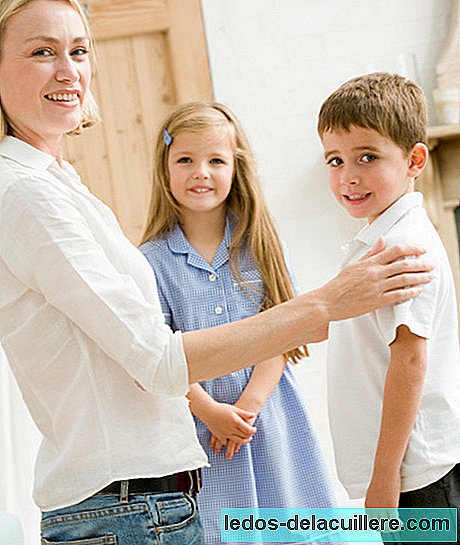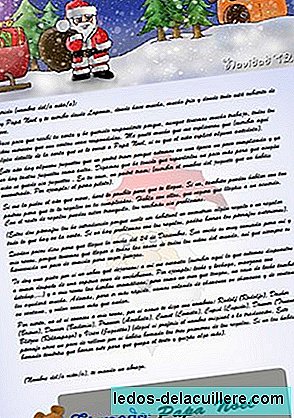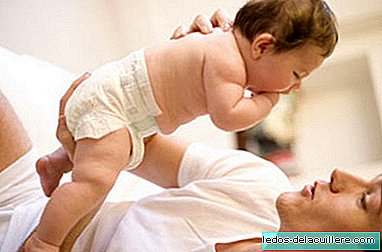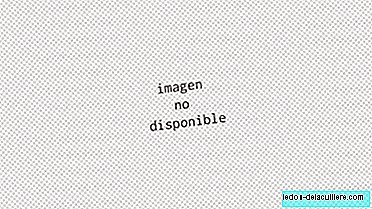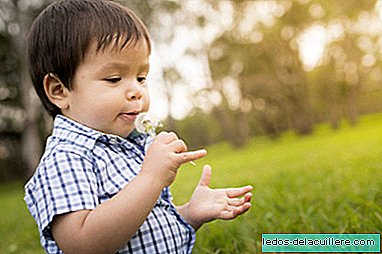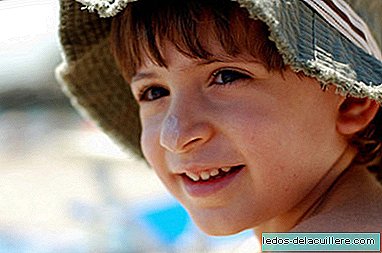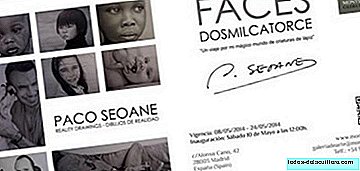The end of the school year is approaching and the graduation parties, performances and plays of our children arrive. Schools and nurseries will be filled with parents with camera in hand seeking to immortalize the performance of their children. But are we sure what to do next (or rather, what not to do) with this graphic material?
The Spanish Agency for Data Protection (AEPD) published a few months ago a guide that clarifies all the questions we sometimes ask parents: Can we record the performance of our children? And send it to our friends and family through whatsapp? And publish it on social networks?
Record or photograph, yes. Spread not
The Spanish Agency for Data Protection (AEPD) published a few months ago the Guide for educational centers, a useful tool for parents and teachers that answers more than 80 questions related to treatment of data and images of the students.
On these dates it is common for parents and family members of students to take photographs and videotape the festive events held by the schools on the occasion of the completion of the academic year.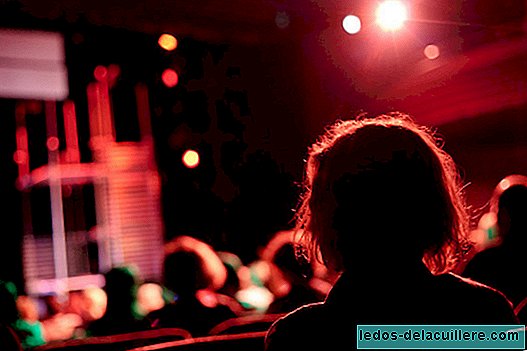
The AEPD emphasizes that if the recording of the images is within the framework of private, family and friendship life, the application of data protection regulations would be excluded. That is, we can record without problem as long as the video or photos are limited to the personal sphere.
Now, if we want to share these images on social networks, we have to make sure that our son appears exclusively in them, because the moment you see the faces of other children, uploading them to networks could bring us problems.
"To upload a photo or video to social networks of a child under 14 written consent from your parents or legal guardians is required. Therefore, when you want to share images where you see the face of children other than yours, you must ask their parents for permission to avoid consequences "- advises María Sánchez, lawyer and blogger
The AEPD is clear in this regard:
"If the images captured by the family members were disseminated outside the private, family and friendly environment, for example through their publication on the Internet accessible in open, the family members would assume responsibility for the communication of the images to third parties that they could not make unless would have obtained the prior consent of the interested parties "
Maria insists that we must respect the right of parents who do not want their children's images to be on the Internet.
"My recommendation is to never upload photographs of children under 14 to social networks. If we still want to share images or videos of our son at the school festival, it is our responsibility, and Under no circumstances should other children appear If we do not have parental permission. One solution could be to pixelate, blur or treat the images so that their faces cannot be recognized "
What if we publish on networks without the consent of other parents?
In the event that the parents or guardians of a child who have not been asked for consent to disseminate their child's images on the Internet discover that your right has been violated, the AEPD states that "They may exercise the right of opposition and cancellation to the person responsible for the processing of personal data (who has captured and disseminated the images), who within 10 days, must satisfy the request or reason why they do not attend".
And he continues saying:
"If there is no response or it is unsatisfactory, the protection of the Spanish Agency for Data Protection can be requested through its electronic headquarters. In the case of the image of minors, the provisions of the Law must also be taken into account Organic 1/1982, of May 5, of protection of the right to honor, personal and family privacy and the image itself, as well as the provisions of Organic Law 1/1996, of January 15, on the legal protection of minors "
Can we send the graphic material through WhatsApp?
The moment we take pictures of our son's festival in which other children appear, we are responsible for those images and, as we have seen before, The use we make of these photographs or video must be exclusively private.
 Therefore, the moment we send the material through whatsapp to other people, we lose control of it and the use they can make of it, although it will remain our responsibility.
Therefore, the moment we send the material through whatsapp to other people, we lose control of it and the use they can make of it, although it will remain our responsibility.Likewise, the Spanish Agency for Data Protection recommends not using this channel for teachers to disseminate images of students to parentsexcept "in those cases in which the best interests of the minor were compromised, as in the case of accidents or indispositions on a school trip, and with the purpose of informing and reassuring the parents"
What happens if there are parents who do not authorize their child to take pictures?
At the beginning of each course the schools ask the parents or legal guardians of the students a signed consent in which they give permission to photograph their children in situations that take place within the school environment (shows, festivals, excursions ...) and publish them later on the center's website, yearbooks or in the school magazine.
If a parent refuses to sign this consent, the center must take steps to have that student do not appear in group photos, either by not photographing him or by digitally treating the image so that it does not appear or is not recognized.
In these cases, it is worth asking how the school should act before a Christmas or end-of-year festival in which many parents will decide to record or photograph the children's performances: Should the event be canceled or the rest of the parents prohibited from taking pictures?
"No. Parents must be informed that the taking of photographs and videos is possible as a family activity, exclusively for personal and domestic use, and is excluded from the application of data protection regulations" - specifies the Guide to the AEPD
In any case, if the recording of the images were produced by the school for educational purposes, such as school work or assessments, the center or the Educational Administration would be entitled to such treatment without the consent of the students or their parents or guardians.
Every precaution is little
The AEPD considers the data protection of minors as one of its priority axes. One of his actions in this regard was the creation of the web You decide on the internet, a project that works with prevention and awareness as the main tools.
In addition to this website, the Agency has the Young Channel, a communication channel to answer questions about the privacy and data protection of minors.
And is that every precaution is little when we talk about children; especially if we take into account that some have 1,000 photographs of him circulating on social networks before his fifth birthday. Photographs that many parents upload without control and without being aware of the security and legal problems that this could cause.
Organic Law 1/1996, of January 15, on the legal protection of minors, establishes in Article 4 (Right to honor, privacy and self-image):
"The dissemination of information or the use of images or names of minors in the media that may imply an illegitimate interference with their privacy, honor or reputation, or that is contrary to their interests, will determine the intervention of the Fiscal Ministry, which will immediately urge the precautionary and protective measures provided for in the Law and will request the corresponding compensation for the damages caused. "
María Sánchez advises us that let's think twice before uploading images from our minor children to social networks:
"The right to privacy is a fundamental, personal and exclusive right that corresponds to each person. In the case of our children, it is only up to them, not to us as parents. Parents, as ostentators of parental rights our children, we have a duty to safeguard this right and protect it until they reach the age of majority "
There are countries that are taking serious measures to prevent parents from uploading photographs of minors to social networks. In France, for example, the law establishes fines of up to 45,000 euros and even penalties of one year in prison for violating the right to privacy of minors by sharing their photos on the Internet.

Therefore, if these days we decide to photograph or videotape our son in his school performance or at his graduation, let us keep in mind what we should not do with that graphic material; so much for our children and their right to privacy, as for the rest of the children who appear on the scene.
IStock photos
In Babies and More What is behind the mothers who share more photos of their children on Facebook ?, Children without faces: is the privacy of the children of celebrities really protected by pixelating their faces ?, 1000 photographs of our children circulate through internet (and without control) before they turn five, If you live in France, your child can report you for posting photos of him on social networks, The image of minors on networks


